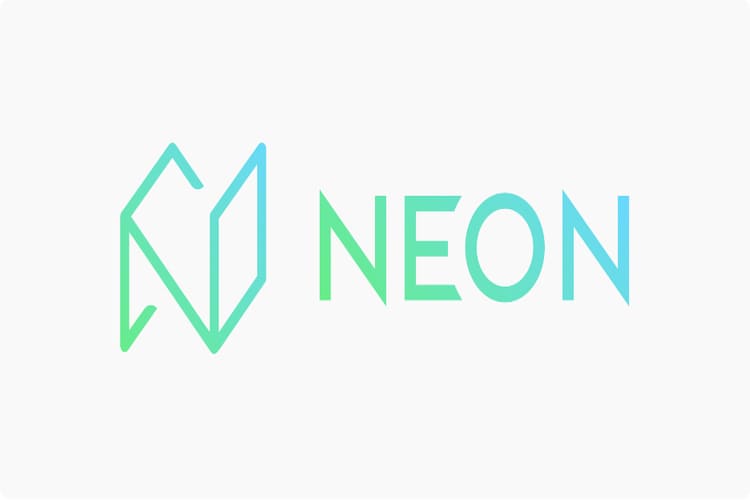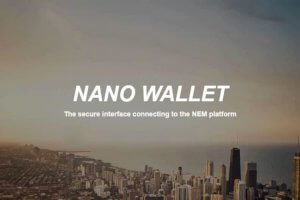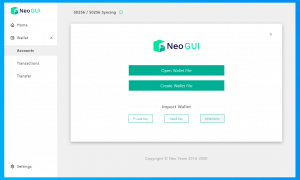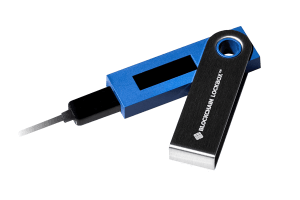NEON Wallet makes it to the list of the most popular wallets designed to store and facilitate your interaction with NEO coins and tokens built on the Neo blockchain. It’s an open-sourced desktop wallet app developed by the City of Zion team and introduced to the world in July 2017. And though it isn’t the official Neo wallet, its code has been reviewed, tested, and approved by the Neo Network developers.
Neon Wallet is marketed as an intuitive, easy to use, and highly secure desktop wallet apps available today. But how true are these claims? What are the factors that make it intuitive and secure? More importantly, how does it compare to other Neo wallets? We answer these questions and tell you everything you need to know about NEON Wallet.
NEON Wallet key features
Cross-platform: Neon wallet is a cross-platform desktop crypto vault that is compatible with all the popular computer operating systems, including Windows, macOS, and Linux. Updated versions of this wallet are available on both the wallet website and GitHub.
Integrates hardware wallets: Neon wallet is compatible with the different types of Ledger hardware wallets. This provides a much-needed boost to not only the number of supported cryptos but also amplifies the security of your private keys.
Multi-coin support: While the Neon wallet is specific to the Neo-blockchain, it supports a host of different coins. These include Neo-blockchain’s native crypto, Neo Coin, GAS, and all the NEP5 tokens.
Lightweight node: Neon wallet is a lightweight, and this means that you don’t have to download the entire NEON blockchain. It, therefore, doesn’t eat into your computer space, speed, or battery life.
Security features
Password encryption: NEON Wallet, like most other desktop-based crypto wallets, is secured with a password, which not only protects the wallet but also acts as an encryption tool for the data therein.
Open source: The Neon wallet is also built on an open-sourced technology. Anyone, including Neon wallet users and Blockchain experts, can view, audit, and propose suggestions on how to best improve the crypto vault. You can view this code from either the NEON Wallet website or the GitHub repository.
Non-custodial: NEON Wallet is a light node desktop client that doesn’t hold your data or store your private keys within their servers. Instead, it gives you absolute control over your private keys by encrypting and saving them in your device.
Backup private keys and history: Neon wallet doesn’t provide its users with a recovery seed. However, they make it possible for you to export and import your decrypted private keys and save them offline in a USB drive or write them down on a piece of paper and store them offline.
How to set and activate the Neon wallet
Step 1: On the Neon wallet website or GitHub, download the updated desktop client that is compatible with your computers operating system
Step 2: Install and launch the wallet.
Step 3: On the startup page, you will be presented with a variety of options; click on the “Create a New Wallet” tab
Step 4: You will now be required to set and verify this password (this protects and encrypts your password)
Step 5: Click on the “Generate Keys” icon to generate an address for your wallet.
Step 6: The wallet will now display the passphrase, public address, private key, and encrypted key. Save this information on your computer or print it and save the copy offline.
Step 7: Hit the‘ Back’ icon to get back to the wallet homepage where you can log in using the saved credentials
Step 8: Your wallet is now active and ready to use
How to add/receive crypto into your Neon wallet
Step1: Login to your Neon wallet
Step 2: Copy the wallet’s public address using the copy clipboard option.
Step 3: Use the copied address to withdraw funds from an exchange or forward it to the party sending you cryptocurrencies
Step 4: Wait for the coins/tokens to reflect on your wallet.
How to send crypto from your Neon wallet
Step 1: Log in to your desktop wallet and click ‘send.’
Step 2: On the ‘Where to send the asset’ section of the transaction details page, enter the recipient’s Neo wallet address and in the amount section, enter the amount of NEO coins you intend to send.
Step 3: Confirm the correctness of these transaction details and hit ‘Send.’
Neon Wallet ease of use
Neon Wallet has a pretty straightforward onboarding process. We also found the wallet to be highly intuitive and beginner-friendly with the send and buy commands strategically placed on the user dashboard. Most of the wallet’s recent upgrades have also been directed towards improving its functionality, as indicated on Neon Wallet’s GitHub page.
For instance, recent updates have ensured that the wallet supports offline signing and authorization of transactions. Additionally, the wallet developers have also introduced multi-lingual functionality to the desktop client and made it available in over ten international languages.
Neon Wallet supported currencies and countries
Neon Wallet is Neo-specific implying that it will only support the Neo coins and any other tokens built on the Neon blockchain.
The supported cryptocurrencies currently include GAS tokens and all NEP5 tokens.
Neon wallet cost and fees
Downloading and installing Neon Wallet or creating a user account is free. You also won’t be charged for storing Neo coins and supported tokens on the wallet.
You will, however, be charged a small transaction fee every time you initiate an outbound transfer. How much you pay in GAS fees is largely dependent on such factors like the number of coins you wish to send and the type of cryptocurrency.
In addition to the transaction fee charged by the Neo blockchain, you might also have to incur additional charges imposed by crypto exchanges.
Note that Neon Wallet will only process whole numbers. Transaction charges will be deducted from the amounts being transferred. For instance, if you wish to send crypto from the Bittrex exchange that charges a $0.1 fee for Neo transactions, you are encouraged only to withdraw a whole number plus the fee. For example, withdraw $28.1 and not $28.5 as the extra $0.4 may be lost.
What are the pros and cons of using the Neon wallet?
Pros:
- Neon Wallet is highly versatile and compatible with multiple operating systems.
- The wallet has put in place solid security measures.
- It is a light wallet that doesn’t require you to download the entire blockchain.
- The wallet gives you total control of your wallets.
- The wallet is highly intuitive and has a beginner-friendly user interface.
Cons:
- It doesn’t support the two-factor functionality.
- One may consider the number of coins and tokens supported by NEON wallet limited.
- Neon Wallet stores your private keys in your computer, and this requires that you first invest in quality antivirus that may be costly.
- One may consider the Neon Wallet’s onboarding process too complicated.
Comparing Neon Wallet with other Neo blockchain wallets
Neon Wallet vs. Neo GUI
Neon Wallet and Neo GUI are both Neo-specific, implying that they will only support Neo coins. Both wallets are also open-sourced, and they have been vetted and approved by the Neon Blockchain development team.
While Neon Wallet is a light node desktop wallet, Neo GUI is a full-stack desktop client. You will need to download the Neo Blockchain to your wallet and synchronize it with the Neo Network main-net if you wish to use Neo GUI. Additionally, the Neon Wallet connects to the Neo Blockchain remotely via nodes, while Neo GUI gives you direct access to the Neo Blockchain user interface.
Verdict: Is Neon wallet safe?
Well, we believe that while Neon wallet has put in place several security measures aimed at protecting your private keys, it has also ignored some key features that would have made the wallet safer. For instance, it doesn’t support two-factor functionality or multi-signature signing. The wallet address generation process is also not hierarchically deterministic. All these, plus the fact that it is an online-based wallet and thus exposed to threats inherent to hot wallets, pierce its security veil. Its ease of use and inexpensive transaction costs nevertheless make it ideal for active smallholder traders.






